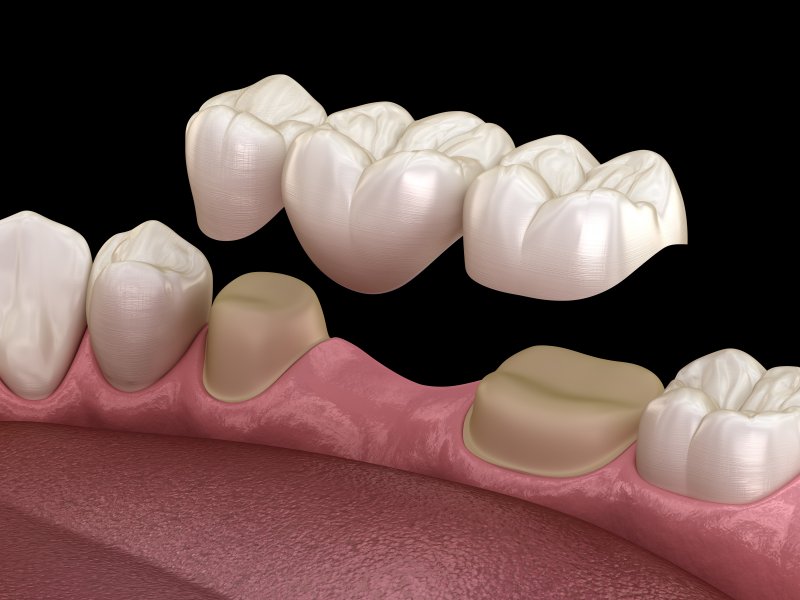What Can Cause Dental Bridges to Fail?
September 24, 2020

These days, with modern dental technology, there are many different options out there in order to replace missing teeth. One popular option is a dental bridge. This is a replacement tooth, also called a pontic, that is held in place by the abutment teeth on either side of the gap. They are generally made from porcelain but can be created out of several different materials. Many people like dental bridges because they prevent other teeth from shifting, maintain the face shape, and restore the ability to chew and speak. However, alike any other replacement options, they aren’t indestructible and don’t last forever. Here are some things that can cause a dental bridge failure if you aren’t careful.
Poor Oral Hygiene
The most common reason that dental bridges fail is due to poor oral hygiene. Bridges require diligent cleaning by the patient. If you aren’t thoroughly brushing twice and flossing once daily, you are putting your bridge at risk. It is crucial that you maintain healthy gum tissue around the surrounding teeth that support the bridge.
Insufficient Abutment Teeth
The teeth that support your dental bridge, also known as the abutment teeth, must be healthy and sufficient enough to support the bridge. If there is an uneven distribution of the bridge on the surrounding teeth due to one of them not being as supportive, it can result in trauma and ultimately, the failure of your dental bridge.
Poor Material Choice
There are all sorts of different types of material that can be used to fabricate a dental bridge, but some of them are better than others. It’s important that the material used is durable and strong so that it can withstand pressure.
Bad Habits
There are plenty of bad habits that can contribute to the failure of dental bridges. Some of the most common ones include nail biting, chewing on pens and pencils, eating sticky and tough foods, bruxism (teeth grinding), and crunching on ice cubes. Patients who have one or more of these habits are much more likely to have a dental bridge failure.
Poor Jawbone Support
If your jawbone isn’t sufficient enough, your abutment teeth will be in a compromised situation, therefore less likely to be able to support a dental bridge. With poor bone support comes a greater chance that your dental bridge will fail and that you will need another tooth replacement option.
Skipping Dental Visits
When you go to your regular dental visits, your dentist will check to ensure that your bridge is still in good shape. Your hygienist clears away any plaque and tartar buildups that could lead to decay of the surrounding teeth and periodontal disease. Both of these issues can cause your bridge to fail.
By taking steps to keep your restoration in good shape, like proper oral hygiene and regular visits to the dentist, you are less likely to experience a dental bridge failure. You will be able to show off your restored smile for years to come.
About the Author
Dr. Stephen Wardlaw provides several different tooth replacement options, including dental bridges, at his practice in Arlington, TX. He earned his dental degree from the Baylor University College of Dentistry and has been in practice for more than two decades. Dr. Wardlaw is a member of numerous professional organizations including the American Dental Association and the Academy of General Dentistry. For more information on dental bridges or to schedule a consultation, visit his website or call (817) 572-5115.
No Comments
No comments yet.
RSS feed for comments on this post.
Sorry, the comment form is closed at this time.

